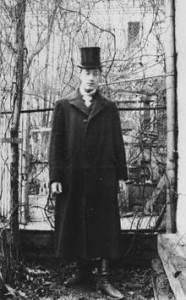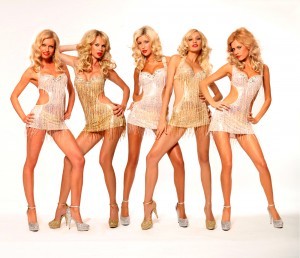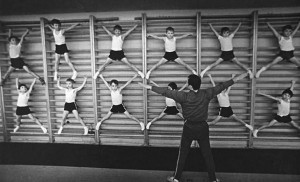from
“Tales about my Soviet childhood”
My Teachers
My childhood winters were snowbound, sunny, frosty and they lasted long. Thick snow layer was covering the earth at least three months of the year.
Now, every time when I see shimmering snow crystals in deep snowdrifts, I am instinctively reminded of my cheerful and happy childhood.
Many of these wonderful moments were on school days. If someone says that he or she did not like school, I find it difficult to believe, because my experience was just the opposite. At school I felt at ease, as we had a lot of funny moments and I found learning interesting. School days meant for me, my first real friends, reading voraciously and, above all, my favorite teachers.
Although most of the subjects were easy for me to manage, I never had a reputation of a swot. On the contrary, in high school we were even playing truant! But that was much later. In my early school years I was a sponge absorbing the knowledge that my teachers were sharing with me, and I would never, ever had an idea to play hooky.
In life, teachers play an incredibly important role. And it is only later that we as adults realize that all the people around us are our teachers and the main thing is to be able to those mentors in people you encounter.
During school days, each teacher is a separate chapter in a student’s life, because he or she is able to develop the gift in a child to see the world with curious eyes and to constantly seek (self) education.
I would like to give a picture of some of my school teachers who have shaped my further life perhaps those who were most striking ones. This people are living examples which destroy the cliché of a ‘bad Soviet school system’, which in my opinion was not so bad at all.
Vyacheslav Vyacheslavovich
He was a dark-haired, lanky and somehow clumsy young man. He taught us Russian language and literature. After primary school, my class went to the middle school, which was in the fourth grade. At that time Vyacheslav became our classroom teacher.
“I know my name is very difficult to pronounce.” so he presented himself to us, his new students, when we first met. “When any of you has problems with my name, just call me ‘Slava Slava’.” (Slava in Russian means «Glory Glory»).
Slava Slava was adorable. He came to work at our school immediately after his graduation from University. He was still a very young man and, one could suppose that he was too inexperienced. But perhaps it was because of a small difference in age, he became very close to us students. Slava Slava always spoke to us as adults, based on the fact that for him we all were mature, reasonable people. He came from an educated family. One of his parents was a member of Academy of Science. Our teacher spoke to us exclusively, «You,» as it is used in the polite version in place of just an informal “you”.
Slava Slava touted Russian language and literature not as an object, but as an integral part of life. He awoke our interest in writing essays on various topics. «Imagine that you flew to the moon. Tell your friends about their experiences. Or “A Wizard will grant you three of your desires. Write about them. »
In his classes, I easily forgot that I was in school in the classroom. It seemed to me that we were talking not to a teacher, but simply to an older friend, discussing with him everything that bothered our minds.
In addition, Slava Slava made us fall in love with poetry. In his classes and at recess we recited poems that we had learned by heart at home. Under our teacher‘s guidance I fell in love with Pushkin’s novel in verse, Eugene Onegin, and I even learned by heart Tatyana’s letter to Onegin. If you wake me up the middle of the night, I still would recall it by heart, after so many years.
With ease Vyacheslav brought Sergey Yesenin’s poetry into our hearts. Following the example of this Russian poet, who at a young age wrote his autobiography — I created my own. What I wrote then, I, a girl of 11 years of age, I do not remember. I only know that I endeavoured to write it like that of Yesenin, whom I adored.
Many years later I discovered the poetry of Nikolai Gumilyov. When I was reading memories about this amazing man, before my mind’s eyes appeared the image of my first teacher for literature, Vyacheslav Vyacheslavovich. I was quite convinced that our classroom teacher, Slava Slava, was looking like that poet whose origins lie in the Russian gentry or even like Lord Byron with his noble appearance.
The most interesting was the fact that I, along with my mother, who taught in our school history and law, both became friends with Vyacheslav Vyacheslavovich. My class teacher often summoned to escort us both back home. He disliked public transport and he liked long walking tours. He moved fast and no wonder! He had incredibly long legs! He said he was pleased to walk and talk with interesting people.
We lived a long way from the school, so our walks home often lasted more than half an hour. I do not remember what we talked about back then. I only remember us walking in a good mood in the white snow, frost and the sun and chatting cheerfully about this and that. I also remember that at our school one topic was actively debated for a while: «With whom of the two young ladies has our young teacher of literature fallen in love with? With an older or a younger?»
My new school.
In the fifth grade, parents placed me into another school, that had opened close to our house. They were worried that in the school where my mom worked, teachers may have out of pure loyalty, overestimated my performance. Being teachers themselves, my parents opted for an objective attitude towards their daughter.
Tatyana
Tatyana Vladimirovna was the director of my new school and she taught us in mathematics. She was a tall, slender and always elegantly dressed woman, who always wore shoes with high heels. In those years, Tatyana (as we called her) was about forty years old, but her whole head she was covered with gray hair. However, unlike many of her contemporaries, she did not colour her hair but proudly wore her long curly hair in a high hairdo.
Tatyana Vladimirovna had an incredible talent. She was able to inspire each child that he or she was a genius, and that he or she could do anything, provided it was wanted by the child. And Tatyana with her magic hand managed to make a student want it. Tatyana Vladimirovna managed to reprogram even those children who had a pronounced arts capacity. «It’s better when a person developed harmoniously the two hemispheres of the brain”, said Tatyana. Literature is as important as mathematics. Mathematics is the gymnastics of the mind «.
Our teacher was right. Mathematics as an exercise developed my will. I was fond of this subject and I liked algebra and geometry in the same way. We had always quite a lot of maths homework, and it was often difficult. Sometimes I was not able to solve a particular task immediately, so I had to struggle over it several times, taking breaks. There was no one who would have helped me with it. When both parents are teachers and when they in addition teach humanitarian subjects, my chances of assistance from outside were close to zero. There were moments when the solution for a «hard nut task» kept my mind in its grip all the day long, then came to me at night.
Tatyana had her unusual teaching method. During examinations, she developed a system whereby every student could choose his or hers own tasks of varying difficulty. We knew in advance that for easier options only «satisfactory” mark was available. If you wanted more laurels and assessments «good» and «excellent», you had to work harder, puzzling over more complex tasks. Since then we learned already at the start to assess our own capabilities.
It was the end of the 1980th, the time of disco, the West German band Modern Talking and the first public beauty contests, which had been banned in the Soviet Union before. Masha Kalinina was the first Miss USSR. The Cult of Beauty, which our people had not yet time to get used to, quickly won the hearts and brains of innocent Soviet folk. There was hardly any girl who wasn’t dreaming of becoming a model.
And our maths teacher, Tatyana, entered into battle with this new trend, which in her view was extremely harmful for schoolgirls. «A girl who wants to live happily, in addition to a beautiful body and a handsome face must have brains.» Constantly, repeated Tatyana. If one or the other pretty student didn’t do her homework, Tatyana asked the lazy individual with a sarcastic smile: «So, I guess you’ve already decided to become a model, haven’t you.» This made the guilty girl become so ashamed that she never dared to forget her homework again. In general, with a light hand of Tatyana the word «model» has become a dirty word in our class. Who knows how many potential model carriers our maths teacher managed to ruin.
Mr. Sikorsky
I do not remember his first name. Everyone called him by his last name, Sikorsky. He was my teacher for physical education. Mr. Sikorsky’s attitude towards students was a mocking one.
At the beginning of the lesson he let us stand in a row by height, asking us to count on «first-second.» (For this we had to say “Fist-Second”, as for certain games or competitions we needed two teams, so the Numbers One built one team, the Numbers Two built another.) Then he would slowly walk up and down in front of us, looking at the faces of some «wimps», as if anticipating the joy of the torment he had prepared, sarcastically saying. «Well, slovens, skives and parasites. Now we are going to work a bit, all right?» He acted as if he was asking for our permission.
Oh, how we worked and how he drove us all. The only thing that I liked during our sport classes was volleyball, but taking tests on the speed, honestly, it was not my strength. (We had to run certain distances within certain time.)
In our snowy winter time, cross-country skiing was a mandatory part of the winter school program. But imagine. A lesson lasted forty-five minutes. During that time we had change our clothes twice, run on skis, sweating seven pots, and then, without taking a shower, (because the showers did not work at the school) and sit in the classroom again, freezing, as the sweat had stayed on our bodies.
One could not say that I was non-athletic, but in my childhood I was more fond of dancing and aerobics. For a while I studied classical ballet, and then moved on to ballroom dancing and even to break-dance. But unfortunately all this did not help me to be fast enough and to have endurance for our P.E. classes.
No matter how I beavered away at my sport classes, my performance turned out much worse than in all other subjects.
On top of it, I quickly realized that Mr. Sikorsky, for some strange reason, hated me! Yes, yes, yes! He hated me! At every opportunity, he emphasized that I, «may be an excellent student, but on physical education frail and weak “ and I do not fit anywhere.
The greatest torment for me was cross running for two kilometers. To get a mark «excellent» you had to run this distance for ten or twelve minutes. I barely fit into sixteen, and sometimes even came out with twenty minutes. And for that I was shamed. “You see, girl, running long distances is not solving tasks in math or writing beautiful exposés, when you move only your brain,” said Mr. Sikorsky in a mocking tone. “To be a good runner you need physical strength, not only brains!”
I could not pass any exam from Mr. Sikorsky with more than «Satisfactory»! My teacher’s sarcastic comments brought me to the idea to give up totally.
However, at a point, my patience came to an end. I decided to engage seriously in my physical performace. To do this, I got up early in the mornings and even before going to school, I went to the nearby forest to jog.
In those years, private gyms were sprouting like mushrooms after rain. There were opening directly in the basements of high-rise-buildings. Residents have converted them into gyms, buying exercise equipment, creating groups for bodybuilding and aerobics. I enrolled into one of these groups. Before class, we ran outside to warm up, and then we sweated, pounded and grunted in the hall with our own special program.
I will never forget Mr. Sikorski‘s surprised face, when I first ran a two-kilometer distance, rewarded with «excellent».My teacher seemed to not believe his eyes. A miracle had happened and I was bursting with proud — feeling like an Olympia games winner!
To be honest today I don’t feel anything bad towards my P.E. teacher. On the contrary, I am grateful to my «torturer» for all his bad jokes and his taunts. Who knows maybe without him I would not know until now the pleasure of running and fitness, without which it cannot live today.
Only much later I discovered the reason for my «special treatment» by my PE teacher. I happened when I once came to see my mother’s friend, auntie Rosa who used to work with her in the same school teaching German language. Rosa was preparing dinner in her small but cozy kitchen. I offered her my help.
So we were sitting together at peeling potatoes, listening to old Brezhnev speeches on the radio as the winter snow silently built up against the frosted window. We loved those cold nights listening to Brezhnev speeches because they helped us go to sleep at night and boiled potatoes with their steam and nostalgic smell of failure signaled the heart of winter.
Auntie Rosa scratched away at another potato and dropped the noble vegetable into the pot. As she stirred the bubbling brew, I remembered back to my childhood nemesis Mr. Sikorsky, the PE teacher always complaining that I ran like a sack of potatoes. Auntie Rosa stopped peeling, looked up and smiled. “You know why he busted your balls all through school?” I stopped peeling, looked up at her. She let out a laugh that could be heard in the whole city of Minsk and through tears of laughter said. «Boris was obsessed with your mother. He was madly obsessed with her.”
I believe nothing in life happens by accident. All our teachers, at school and after, serve our internal needs to develop certain qualities or to understand something special.
Tblisi, February 11th, 2017




